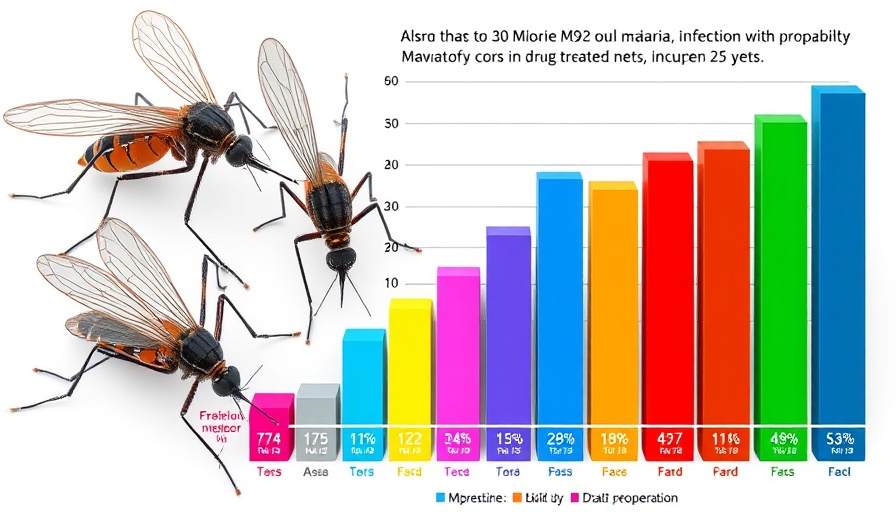
Rethinking Malaria Prevention: A Fresh Approach
As malaria continues to be a significant threat to public health globally, innovations in treatment and prevention are more critical than ever. A groundbreaking study published in Nature highlights the potential of drug-treated bed nets to combat malaria at its source by employing a novel strategy: targeting the parasites in mosquitoes directly, instead of simply killing the mosquitoes themselves. This approach could reshape how we think about malaria prevention and control.
Understanding the Challenge: Malaria and Resistance
Malaria remains one of the deadliest diseases, affecting hundreds of millions annually. In 2023 alone, there were approximately 263 million new malaria cases worldwide, leading to over half a million fatalities. With the increasing prevalence of insecticide resistance among malaria-carrying mosquitoes, traditional methods of prevention, such as insecticide-treated nets, have started to lose their effectiveness. Alexandra Probst, a lead author of the study, emphasized the pressing need for innovative solutions that can bypass this mounting challenge.
Innovative Solutions: The Role of ELQ Drugs
The study's primary innovation involves a class of drugs known as endochin-like quinolones (ELQs), which are designed to inhibit malaria parasite growth within the mosquito. These drugs were incorporated into bed nets, providing a dual function of protecting humans while targeting the root of the problem—the parasite itself. This concept, described as both clever and novel by Dr. Riscoe, represents a pivotal shift in malaria control strategies.
Why This Strategy Matters
By shifting the focus from the mosquito to the malaria-causing parasites, researchers are exploring a path that aims to improve the efficacy of existing prevention tools. As we become increasingly aware of the complex dynamics between humans, parasites, and the environment, understanding these relationships is essential for developing sustainable healthcare solutions. The implications of this research may extend beyond malaria, potentially influencing other areas of vector-borne disease control.
Looking Ahead: Future Implications and Opportunities
The integration of ELQ drugs into bed nets presents exciting opportunities for future malaria prevention efforts. This study opens the doors to further research and development in the field of biotech, potentially leading to more effective and sustainable strategies against malaria and other mosquito-borne diseases. As researchers continue to refine these methods, it is crucial that the global health community supports further trials to ensure these innovations can be rolled out effectively.
What This Means for You
For communities in malaria-endemic regions, this research could mean a significant reduction in malaria transmission and related fatalities. By making informed choices about health strategies and supporting policies geared towards innovative solutions, individuals can play a crucial role in the broader fight against malaria. As the world moves forward, it is essential to remain optimistic and engaged with ongoing research and developments in healthcare.
Conclusion: The Power of Community Action
As the search for effective malaria solutions continues, community involvement and advocacy for innovative approaches like drug-treated nets can drive change. With increased awareness and continued support for scientific research, we can move closer to a future where malaria is no longer a widespread threat, protecting countless lives around the globe.
 Add Row
Add Row  Add
Add 




Write A Comment